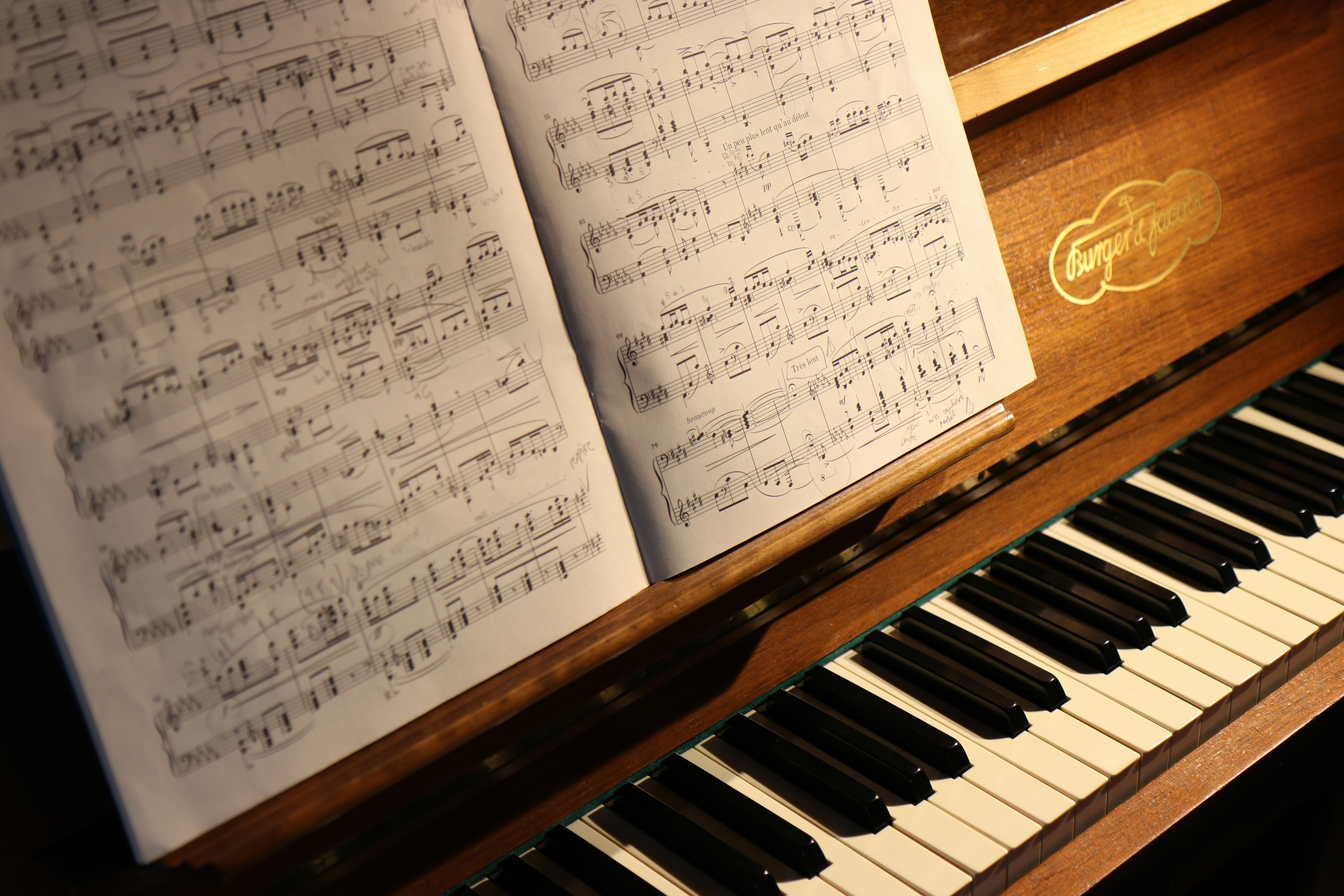There's one conversation I've had untold times, whenever the topic turns to learning or playing a musical instrument. It seems there are endless accounts from both adults and young people who fall out of music, perhaps discouraged by monotonous teachers, demotivated from tedious practice, or demoralised by exam pressures thrust upon them. One thing these stories all have in common? A transparent sentiment of regret.
I myself learnt to play piano at a young age and achieved my ABRSM Grade 8 aged 11 and DipABRSM a few years later. I've successfully auditioned at a prestigious UK music school and have enjoyed many performance opportunities, including for BBC Young Musician. My piano journey currently continues with preparation for my Licentiate of the Royal Schools of Music.

Image Credit: Wu from Unsplash
Although I never wanted to follow a career path as a professional musician, playing the piano is something I have come to recognise as a skill for life. I feel certain in saying that our musical development deserves the best chance to fully fluorish. So when I hear these countless stories of those who gave up on music, I often think of how we could cultivate our progress and enjoy our practice to make playing an instrument a lifelong interest.
Here's advice based on my own piano journey:
Let us slide into your dms 🥰
Get notified of top trending articles like this one every week! (we won't spam you)1. Play the Music You Enjoy
It is so important to choose music you feel excited to learn. Often times, we may feel forced into playing particular pieces, for example because of a limited exam syllabus or the classical music we typically associate with learning an instrument. Looking for an emotional connection is key - it could be a recurring melody you are drawn to or a composition you simply love. Practicing piano involves a lot of repetition, so having this appeal, whether a classical, jazz or pop piece, will help keep you motivated and wanting to come back.

Take the Quiz: Which BLACKPINK member are you?
Find out which BLACKPINK member you resemble the most!
2. Balance the Learning Process and Exams
Many children and young people measure their progress through the exam process. It's true that exams provide tangible rewards for future aspirations and are also valuable in building discipline and setting goals. However, we must not estimate our entire ability based on a collection of certificates. For me, exams came relatively late, but the focus on honing my skills meant I quickly made way to Grade 8, skipping a few, over a couple of years.
On average, it takes a year or longer to complete each grade - a lengthy period to be limited to only a small number of pieces. Integrating exam preparation with other repertoire you are keen to pick up is certainly an effective solution. Keeping things fresh and fun is majorly key.

Image Credit: Ruthvik Chandramouli from Unsplash
3. Make the Most of Warm-Ups
As a younger pianist, I often played Hanon and Czerny technical exercises as a warm-up. In my view these, alongside scales and arpeggios, are beneficial to an extent. I think though that many fellow musicians will agree they can quickly become tedious and mundane - a factor which may be a deterrent to practice.
Personally, I like taking warm-ups as an opportunity to revisit pieces I have previously enjoyed learning. It is also great to gently exercise musical shaping and dynamics in a relaxed and fun way. Immersing yourself in music you have loved playing in the past will prove a truly rejuvenating start.
4. Time Out, Not Time Lost
Although musical progress requires much commitment, this doesn't mean practice has to be stringent and uncompromising. If a relentless schedule leaves little time for music, it's perfectly understandable to take a break. There have been many periods, stretched across months even, where I myself have hit pause with the piano.
People may feel that if regular practice cannot be sustained, there's little point in continuing. This seems to be a self-imposed pressure and, contrary to belief, you never really lose the skill of playing an instrument. So if you're absorbed in school or other commitments right now, not to worry - music will always be there to come back to.

Image Credit: Claude Gabriel from Unsplash
5. Reading Reaps Rewards
Without a doubt, reading sheet music constitutes the core foundations of learning any instrument. If you aren't able to decipher written scores, your enjoyment of playing will never be maximised. The process of learning to read can be a hugely challenging albeit rewarding part of the journey, so be patient and resolute.
It may initially feel like learning a whole new language, which in a way it is, but the perseverance is worth it. The ability to read music brings a world of new pieces within reach - undoubtedly an exciting prospect for any musician.
6. Teach
For those who are more advanced, teaching presents a fantastic opportunity to inspire others and share the love of music. Playing a part in introducing students to music and guiding them is both a fulfilling and refreshing experience. It's wonderful to be able to contribute to their progress and improvements. I hope they have a lifelong connection to the piano and that it positively impacts their lives as much as it has mine. 
Image Credit: Lorenzo Spoleti from Unsplash
7. Faultless is Flawed
When listening to professional recordings, the flawless performances can sound a world away from our own renditions. It must be noted that these musicians dedicate hours and hours to their concert pieces - removing the most minute of mistakes, refining dynamics and polishing expressive passages. Whilst the end result is hugely impressive and memorable, for most the process leading to this is simply unrealistic and impractical.
I myself have only prepared in such a meticulous way for exams and auditions. Try not to get fixated on reaching 'performance' standard with everything you play. Instead, build your musicality and technical skills through the challenge of new pieces and expand your versatility with a range of genres.
The most important lesson I can offer is to maximise your enjoyment at every opportunity you have. Growing the love for playing your instrument will bring longevity, so you'll never have to regret falling out of music.











.jpg)


